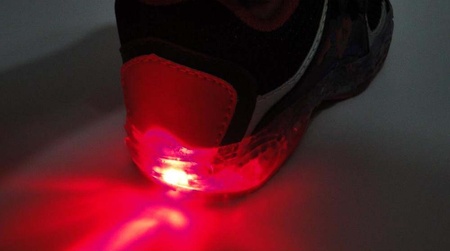Every other week, I stop by a Japanese grocery store that's just down the block from my house, in Liberdade, to buy some basic products: sushi, soy sauce, tofu, rice... that sort of thing. And it was in this place that I met a little girl who is already a true athlete.
I call her that because, despite still being very young – about three or four years old – this girl is already a phenomenal being, tireless, outstanding, even Olympic.
I remember that, on that day, just during the time I was there – no joke –, she ran through the store aisles for more than twenty minutes... straight!!! Interest. Just hearing his prank made me feel cramps in my legs.
From what I gathered, she must be related to the grocery store owners; as he was very comfortable in the environment. And I also realized that she was born in Japan; because the people at the grocery store only spoke to her in Japanese, to which she responded to everything by simply saying: “ Hai !”
Another detail: this mini marathon runner's sneakers, in addition to being all colorful, were those with little lights that flash on the sole of the heel.
So, with the energy of all the sweets in the world and the stimulation of the lights flashing beneath her feet, the little girl flew low among us, the store's customers.
But, despite the attention that this little figure attracted, I only really saw it when it entered the corridor where I was and stopped just a few centimeters from me.
Due to the near accident, the girl looked at me scared, took a few steps back and, extending her little arms at her sides, bent her torso to give me a small bow of apology. As I'm not used to this type of greeting, I just smiled. I thought it was all very polite on your part. I continued with my shopping.
But, soon after, I noticed a very elderly and very large man – not to say very obese – who had just entered the grocery store. He wore suspenders and a bow tie. The man walked slowly.
At the same moment, I remembered the girl. I feared the worst.
I stayed alert. If she passed me, I would ask her to stop running. I just didn't know how I would do it if she didn't understand Portuguese.
So I called her and, with great enthusiasm, told her through gestures and mimes not to run anymore because a very big man had just entered the grocery store.
I certainly wasn't efficient. Well, fixing her hairstyle – a ponytail – and laughing a lot, the girl just said to me “ Hai !” and continued at his trot.
When I finally used my head, I asked one of the grocery store employees to get her attention... but it was too late:
The man was walking with his basket down one of the corridors. The girl ran alongside the checkout line. The man stopped to enjoy the cakes. The girl turned to the hallways. The man turned to the shelf on his right. The girl didn't see him. The man stretched out one of his arms to try to prevent the collision. The girl closed her eyes and sank into the man's belly: Boing!
The man didn't get angry. But he was startled by the collision and, bending over, he began to cough. The girl took a few steps back and, amazed, looked at the man.
When a grocery store employee and I approached him to help him, the girl opened her mouth. But this time it wasn’t to say “ Hai !” and, yes, to say in the most perfect Portuguese:
- Wow, uncle, what a soft belly, huh!?!
© 2016 Hudson Okada







